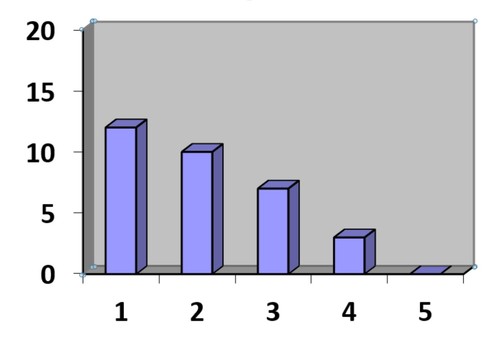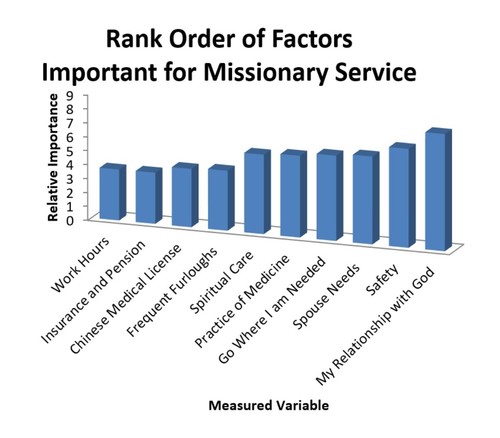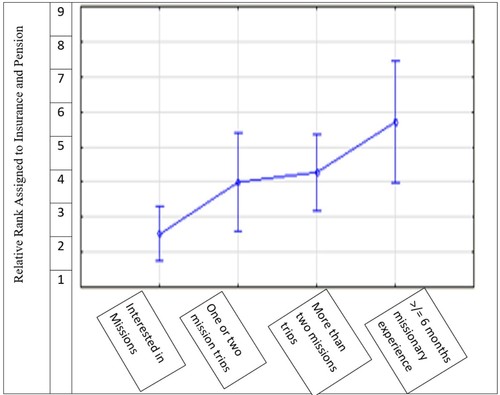The Chinese church is vibrant and has a growing passion to participate in missionary sending through undertakings like the Back to Jerusalem (BTJ) movement and the Indigenous Mission Movement from China (IMM China). Chinese Christians feel God calling them to long-term mission service. Attrition rates of Chinese missionaries are high, however, and a number of difficulties (including finances) hinder Chinese missionary sending. In this article, I will discuss financial considerations related to one particular subset of Chinese missionaries—Chinese medical missionaries. Financial considerations for this particular group may have implications for the larger missionary sending movement from China.
The Importance of Finance to Chinese Missionary Sending
Chinese missionaries have multiple financial needs. In addition to personal salary, funds are needed for ministry. Insurance, retirement planning, parental support, and contingency saving/spending are other areas that some Chinese missionaries find essential. Unmet needs in these areas place strain on the Chinese missionary. Chinese missionaries look to God for needed financial resources, in faith holding to a maxim promulgated by one of their heroes, Hudson Taylor, who said, “God’s work done in God’s way will never lack God’s supply.[1][2] Yet the fact remains that finances have been a huge factor in the premature return of a substantial number of missionaries sent from China.[3]
Prospective Chinese Medical Missionary Finance Perspectives
As part of a study examining causes of Chinese missionary attrition, I recently conducted three focus groups with a total of 14 Chinese Christian doctors who had previously participated in short-term mission service. I wanted to better understand a variety of issues of importance to prospective Chinese medical missionaries. Out of all the identified issues, I selected ten, and in a subsequent survey of physicians and medical students, I asked a group of Christian physicians and medical students who were interested in missions to rank these ten issues in order of importance.
I also conducted interviews with eleven[4] Chinese long-term missionaries[5] using a questionnaire developed by the World Evangelical Fellowship.[6] These interviews provided a helpful supplement to prospective Chinese medical missionary data. In this article, from research findings, I will explore the importance of finance as an issue for prospective Chinese medical missionaries.
Financial Considerations are Important to Physicians with Field Experience
In 2012, JT and I conducted a study involving 32 medical students and physicians asking them about the importance of salary as a factor in determining mission service location.[7] One question asked:
If willing to go on a short or long term assignment to an area of the world that does not have much gospel witness, how important is it to have a good salary?
Not important————————————————————-Very important
1 2 3 4 5

Figure 1: Supposed Importance of Salary of Mission Service
The great majority of respondents to this survey had little to no mission field experience. But to these respondents, a “good salary” was apparently not too important as a factor in deciding on a location to serve in missions work.
In 2016, a follow up study was completed of 43 mainland China physicians and medical students asking them to rank in order of importance issues for prospective Chinese medical missionary physicians. A finance-related factor, insurance and pension, ranked relatively low in importance.

Figure 2: Rank Order of the Means for All Mainland Chinese Physicians Participants[8]
Importance of Insurance and Pension
Survey respondents (in this case all who were from mainland China and not specifically disinterested in missions) were asked to rank the following items from 1-10 with 10 being the most important and 1 being the least important to medical missionaries who might be considering long-term mission service:
___Maintaining a medical license in China
___Spiritual support by pastoral care in a mission sending organization
___”Growing in my relationship with God”
___”Being somewhere I am needed”
___Safety
___Ability to practice medicine locally in country of service
___Appropriate hours of work each day
___Frequent furloughs (return trips to China) for a missionary to visit family or friends
___Insurance benefits and pension
___Spouse employment and needs
These findings initially seemed consistent with the earlier 2012 study. However, when survey response data were analyzed in the context of a physician’s experience with mission work, an interesting difference emerged in the perceived importance of insurance benefits and pension. Physicians who had served in medical missions for more than six months placed a significantly greater value on insurance benefits and pension (Approximate probabilities for post hoc tests error = < 0.01). This finding suggests that although prospective missionaries might relatively undervalue some practical financial concerns like pension and insurance, such issues should not be overlooked in the comprehensive planning offered by those interested in the sustainability of long-term Chinese physician missionaries.

Figure 3: Importance of Insurance and Pension as Related to Length of Missionary Service
Chinese Physician Expectations Related to Financial Provision
Financial realities were indeed a concern for physician focus group participants (FG#8, 12).[9] Nevertheless, prospective Chinese medical missionaries were generally quite optimistic about the prospect of obtaining adequate financial provision (FG#8). They hoped for support sufficient to cover basic living costs (FG#1, 13) and a stable salary with the insurance benefits considered standard for Chinese workers (FG#8, 11). They anticipated that Chinese missionaries might achieve a middle class economic status, not “eating pickled salty vegetables and steamed bread every day, or wearing worn-out clothes, needing sewing and mending” (FG#13). Chinese missionaries hoped to eat enough because, as one participant said, that is “where your strength comes from to do God’s work” (FG#1). The need for finances related to ministry expenditure and travel was also discussed (FG#8). Focus group participants hoped that a mission sending organization might be able to resolve pension-related issues for missionaries on their return to China (FG#8).
Further clarifying prospective Chinese missionary physician expectations, one focus group participant added that no matter how much a missionary loved the Lord, if the salary was lower than average for a Chinese doctor, enthusiasm for missions might wear thin (FG#8). This participant felt that wages being a bit higher than that paid a comparably educated Chinese doctor remaining in China might help physicians feel more contented with the risks of leaving home. Finance augmentation might be used to help stabilize the relationship between the medical missionary and a church-based sending system, helping to prevent a waning of missionary enthusiasm for service (FG#8).
Long-Term Missionaries Sent from China Experience the Reality of Financial Strain
Comparing expectations of prospective Chinese medical missionaries to the lived reality of Chinese missionary experience is illuminating. Interviewed Chinese missionaries generally had difficulty garnering adequate financial support for missionary service. Lacking adequate food or education materials for family members, those involved in ministry are not able to give their complete attention to service, but must earn money to “provide rice for their children” (MI#5).
The list of items to include in a credible financial plan is long. In addition to the costs of basic living, there are costs of insurance (MI#6), tuition related to missionary training (MI#3), and contingency funding set aside to help, for example, with an unexpected hospitalization of a parent in China (MI#6,8,9). Some Chinese church leaders claim, “God is our insurance.” Nevertheless, one missionary felt that it was irresponsible for church leadership to not provide the five standard Chinese insurances, including health insurance (MI#6). Ministry materials, travel expenses, language study costs, and even enough money to take a Jewish or Arabic friend out for a meal to talk about “things” made the list of worthy budgeted items (MI#10). When missionaries retire, new leaders in their sending churches may not know them (MI#5). Good arrangements must be made for their retirement years (MI#5, 6).
Often facing inadequate or variable income, interviewed missionaries experienced financial stress (MI#4, 5, 10, 12). Some missionaries, lacking monetary support from the home church, left their ministry in order to find jobs. One accumulated US$3900 in debt to her ministry supervisors which required two years to pay back (MI#10). On the day when the entire bill was finally paid to the great relief of the missionary, one supervisor for whom she worked simply commented, “Oh. It is two years late.” Missionaries experience stress knowing that they represent the Lord. In addition, there is the strain of wanting to leave a good perception of the Chinese church (MI#10). Some missionaries claimed their support was “good,” but then revealed that their “expectation was low” (MI#8).
Need for Development of Models for Financial Support for Prospective Chinese Missionary Physicians that Matches Current Realities
Chinese missionary physicians serving long-term do have financial needs. For Chinese physicians with longer periods of field experience, financial considerations actually are increasingly acknowledged as factors in missionary service decision making. Expectations of prospective Chinese medical missionaries are high. But these expectations in many cases do not match the reality of long-term experienced Chinese missionaries and may need adjustment. At the same time, models for generating financial resources might be explored leading to sustainable income for Chinese missionary physicians. In subsequent articles, I will explore models for financial resource generation focusing on one such model particularly available to this group, a Chinese “tent-making” medical clinic.
References
- Elkins, P., Lewis, J., and Van Meter, J. 2003. Three Part Missionary Tracking Guide. WEA: Missions Commission.
- Taylor, Howard. 2000. Hudson Taylor and the China Inland Mission: The Growth of a Work of God. United States of America: OMF.
- Withheld, Name. 2012. Assisting Chinese House Churches to Become Great Commission Churches, The Southern Baptist Theological Seminary.
- 四石. 2012. The Chinese Missionary Task. Capstone Study Submitted in Partial Fulfillment for Masters in Leadership Development at Indiana Wesleyan University, Indiana Wesleyan University.
GJ
GJ (pseudonym) is a doctor working in China.View Full Bio
Si Shi (四石)
Si Shi (pseudonym) has lived in China for more than five years and has many friends who work in the medical profession.View Full Bio